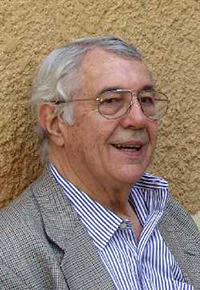 Courtesy of NIDCR/NIHDavid Barmes
Courtesy of NIDCR/NIHDavid Barmes
The
NIH David E. Barmes Global Health Lecture series honors the late David Edward Barmes, special expert for international health at the
National Institute of Dental and Craniofacial Research (NIDCR). Prior to joining NIDCR, Dr. Barmes, a public health dentist and epidemiologist by training, served in senior management positions related to oral health, health promotion, and non-communicable diseases at the World Health Organization in Geneva.
The lecture series was established by the NIDCR and Fogarty International Center after Dr. Barmes’ death in 2001 to honor his lifelong dedication to research aimed at improving health for those in low-income countries. Barmes was a dedicated researcher who co-directed the WHO International Collaborative Studies of Oral Health Systems with Lois K. Cohen, PhD, a research sociologist at the NIDCR. Dr. Edward Brandt, then Assistant Secretary for Health of the US Department of Health & Human Services and Dr. Halfdan Mahler, then Director-General of the World Health Organization, described these studies as a model for examinations of other types of health care delivery as well as an example of how countries can learn from each other about what structures do or do not benefit the health of their respective populations.
Updated December 19, 2023